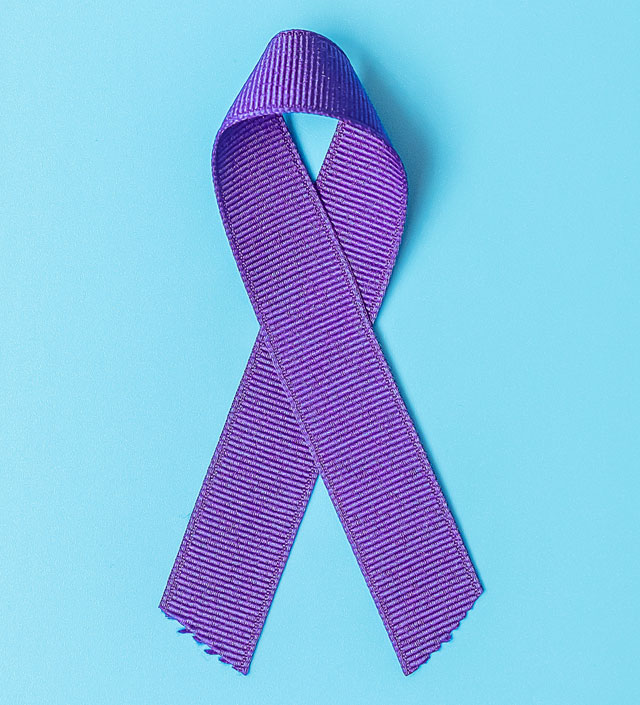[Editor’s Note: June is National Cancer Survivor Month.]
The pandemic has been hard on everyone for different reasons. One unexpected outcome was an increased risk for cancer.
When the world shut down in March 2020, many people were afraid to leave their homes. Across the country, schools closed, people were wearing masks and gloves to get groceries, and many healthy people skipped their doctor and dentist appointments — including their scheduled cancer screenings. Two years later, more than half of all Americans haven’t gotten those appointments back on the books. Nearly 2 in 5 adults ages 55 and older who had an appointment scheduled during the pandemic missed it.
Most people don’t show symptoms of cancer until it has advanced, which is why early detection is so important. Routine cancer screenings are important at all stages of adulthood, but the likelihood of developing cancer increases greatly with age.
Approximately 80% of the people diagnosed with cancer in the U.S. are age 55-plus; 57% are 65 or older (American Cancer Society)
There are many different types of cancer screenings — and patients have a lot of options available to them. Preventing skin cancer can be as simple as a visual full-body check by a dermatologist or healthcare provider. Regular dental exams screen for oral cancers. For colorectal cancer screening, in addition to the colonoscopy and other visual tests, we now have stool-based testing that people can do at home. Cervical cancer is screened with a Pap and/or human papillomavirus (HPV) test and breast and lung cancers are usually screened through mammograms and low-dose CT scans.
Major breakthroughs are on the horizon for seniors through simple blood tests. Several companies have developed “multi-cancer early detection” tests. Not yet approved by the Food and Drug Administration (FDA) or reimbursable by Medicare, this technology may prove game changing for cancer detection and treatments.
Additional Reading: Cancer Diagnosis Gives Advisor Perspective
Knowing your family history and understanding your own habits will tell you if you’re at greater risk for certain cancers. The most important thing you can do is to see your doctor. Get physicals and cancer screenings “back on the books.”
What questions should I ask my doctor?
- Make a list of questions before you see your doctor. A lot of people suffer from “white coat syndrome” and get scared, nervous or forget what they wanted to ask their doctor.
- Find out what annual screenings you should be getting and how often.
- Ask what vaccinations you need.
- Be honest and talk about your lifestyle habits. Ask your doctor how these could impact your overall health. What is your diet like? Do you drink alcohol? Are you exercising? Do you smoke?
- Tell your provider about any pain, discomfort or changes in your body — including new moles, lumps or sore areas
What screenings and vaccines are recommended for adults 50+ at average risk?
The screenings you need and how often you should be screened depend on a variety of factors, including age, your personal and family health history and lifestyle habits, such as smoking. The following screening tests are recommended for adults 50 and older at average risk:
- Breast cancer screening.
- Cervical cancer screening until age 65.
- Colorectal cancer screening until age 85.
- Prostate cancer screening.
- Oral cancer exam.
- Testicular checks.
- Skin checks.
- Hepatitis B vaccine to age 59 if not already vaccinated*.
- Hepatitis C testing at least once between ages 18-79*.
*Hepatitis B and C are linked to liver cancer.
How much does a cancer screening cost?
Under the Affordable Care Act, most private insurance, Medicaid and Medicare are required to cover cancer screenings for breast, colorectal and cervical cancer screening, as well as lung cancer screening for those at high risk. The list of covered screenings are A or B grade from the United States Preventive Services Task Force.
For uninsured, programs like the Centers for Disease Control and Prevention’s National Breast and Cervical Cancer Early Detection Program offer free or low-cost screenings. Other are also available.
If you aren’t sure what screenings you need, call your health care provider or make an appointment online. To learn more about these screenings visit www.preventcancer.org.
Jody Hoyos is president of the Prevent Cancer Foundation, a U.S.-based nonprofit organization dedicated solely to cancer prevention and early detection.







